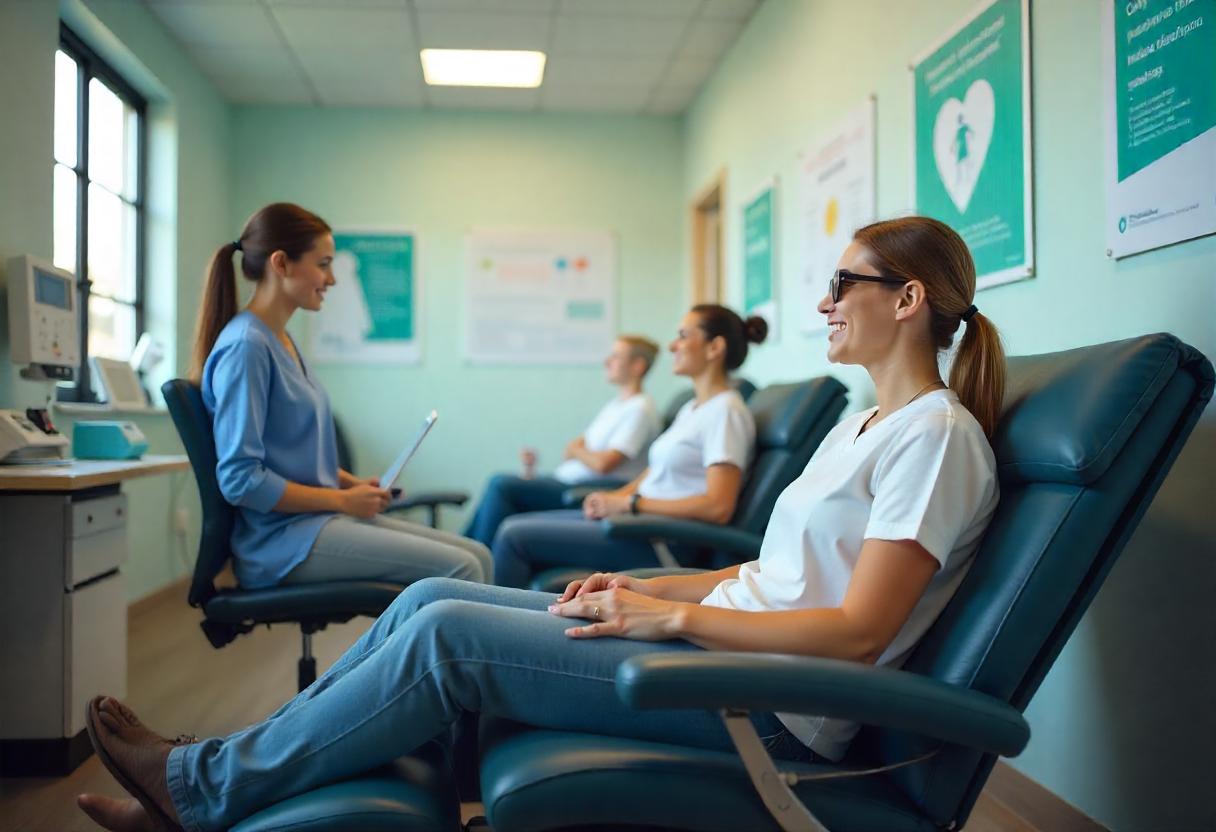NEWS
Plasma Donation Jacksonville FL: Everything You Need to Know

Plasma donation in Jacksonville, FL, plays a critical role in saving lives. Plasma, the liquid part of blood, is used to treat various life-threatening conditions, including immune disorders, hemophilia, and burns. Many residents of Jacksonville choose to donate plasma for both altruistic and financial reasons. However, before you visit a plasma donation center, it’s essential to understand the process, eligibility requirements, benefits, and compensation.
If you’ve ever considered plasma donation in Jacksonville, FL, this guide will provide you with all the necessary information to make an informed decision.
Why Plasma Donation is Important
Plasma donation is crucial because it provides life-saving treatments for individuals with chronic illnesses. Unlike whole blood donation, plasma can be donated more frequently, making it a sustainable option for both donors and recipients.
Hospitals, pharmaceutical companies, and researchers rely on donated plasma to create therapies that help people worldwide. In Jacksonville, FL, multiple plasma donation centers work tirelessly to ensure a steady supply of plasma for medical needs.
How Plasma Donation Works
Step 1: Registration and Screening
When you visit a plasma donation center in Jacksonville, you’ll need to provide identification, proof of residency, and possibly medical history. Centers perform a thorough health screening to ensure donor safety.
Step 2: Plasma Extraction (Plasmapheresis)
Plasma donation involves a process called plasmapheresis, where your blood is drawn, the plasma is separated, and the remaining components are returned to your body. This process typically takes about 90 minutes.
Step 3: Post-Donation Recovery
After donating, you’ll be advised to rest, drink plenty of fluids, and eat a nutritious meal to replenish lost nutrients.
Eligibility Requirements for Plasma Donation
To donate plasma in Jacksonville, FL, you must meet certain eligibility requirements. These generally include:
- Age: Must be between 18 and 65 years old.
- Weight: Must weigh at least 110 pounds.
- Health Condition: Donors must be in good health and free from infectious diseases.
- Medical History: Certain medications and medical conditions may disqualify you.
- Recent Travel: Travel to certain countries with high-risk diseases may impact eligibility.
Each plasma donation center may have additional requirements, so it’s best to check with the specific location before visiting.
Compensation for Plasma Donation
Many people donate plasma not only to help others but also to receive compensation. Jacksonville’s plasma donation centers typically offer between $30 and $100 per donation, depending on various factors such as:
- First-time donor incentives
- Frequency of donation
- Promotions and referral bonuses
Frequent donors can earn up to $500 per month, making plasma donation a practical way to earn extra income.
Top Plasma Donation Centers in Jacksonville, FL
1. CSL Plasma
- Location: Multiple locations across Jacksonville
- Compensation: Up to $700 for new donors in the first month
- Requirements: ID, proof of address, and a valid Social Security number
2. BioLife Plasma Services
- Location: 9301 Atlantic Blvd., Jacksonville, FL
- Compensation: Around $50 per visit for repeat donors
- Special Offers: Referral bonuses and seasonal promotions
3. Octapharma Plasma
- Location: 3744 Blanding Blvd., Jacksonville, FL
- Compensation: First-time donors can earn up to $800 in their first month
- Other Benefits: Loyalty programs and flexible donation schedules
4. KedPlasma
- Location: 5000-1 Norwood Ave., Jacksonville, FL
- Compensation: Competitive rates with weekly promotions
- Additional Perks: Bonus incentives for repeat donors
These centers provide a safe and regulated environment for plasma donation while ensuring donors receive fair compensation.
Health Benefits of Plasma Donation
Plasma donation isn’t just beneficial for recipients; donors also experience several health benefits, including:
- Increased Red Blood Cell Production: Your body regenerates new cells, improving overall blood health.
- Caloric Burn: Donating plasma burns up to 600 calories per session.
- Regular Health Screenings: Each donation requires a health check, which can help detect potential health issues early.
However, donors should stay hydrated and maintain a healthy diet to avoid feeling fatigued after a donation.
You may also like: Plasma Donation San Antonio: Save Lives & Earn Rewards
Common Concerns About Plasma Donation
Is Plasma Donation Safe?
Yes, plasma donation is FDA-regulated, and all equipment used is sterile and disposable. Side effects are minimal, with most people experiencing only mild fatigue or dizziness.
How Often Can You Donate Plasma?
You can donate plasma twice a week, with at least 48 hours between donations. This ensures your body has time to replenish plasma levels.
Does plasma donation hurt?
The procedure involves a needle insertion, which may cause mild discomfort. However, most donors report that the process is relatively painless.
Conclusion
Plasma donation in Jacksonville, FL, offers a unique opportunity to save lives while earning compensation. Whether you’re donating out of kindness or for financial reasons, understanding the process, eligibility, and benefits ensures a smooth experience.
With various reputable donation centers in Jacksonville, getting started is easy. So, if you meet the requirements and are ready to make a difference, consider donating plasma today!
FAQs
How long does plasma donation take?
The entire process, including registration, takes about 90 minutes. Regular donors may complete it in 60–75 minutes.
Can I donate plasma if I have a tattoo or piercing?
Yes, but you may need to wait 4–12 months after getting a tattoo or piercing, depending on the donation center’s policies.
What should I eat before plasma donation?
A protein-rich meal with iron-rich foods like spinach, chicken, and eggs is recommended. Avoid fatty foods and alcohol before donating.
What should I bring to my first plasma donation?
Bring a valid ID, proof of address, and Social Security number or equivalent documentation.
Can I exercise after plasma donation?
It’s best to avoid intense physical activity for 24 hours to prevent dehydration or dizziness.
Are there any risks associated with plasma donation?
Plasma donation is generally safe, but some donors may experience lightheadedness or bruising at the needle site. Drinking plenty of fluids helps reduce these effects.
-

 HUMAN RIGHTS3 months ago
HUMAN RIGHTS3 months agoMercy Ships Scandal: Unraveling the Truth Behind the Allegations
-

 SOCIAL AWARENESS3 months ago
SOCIAL AWARENESS3 months agoIs Helping Hands Legit? Unveiling the Truth Behind This Organization
-

 SOCIAL AWARENESS3 months ago
SOCIAL AWARENESS3 months agoNational Charity League: A Legacy of Leadership and Service
-

 HUMAN RIGHTS4 months ago
HUMAN RIGHTS4 months agoHuman Rights Issues: Challenges and Progress in a Globalized World
